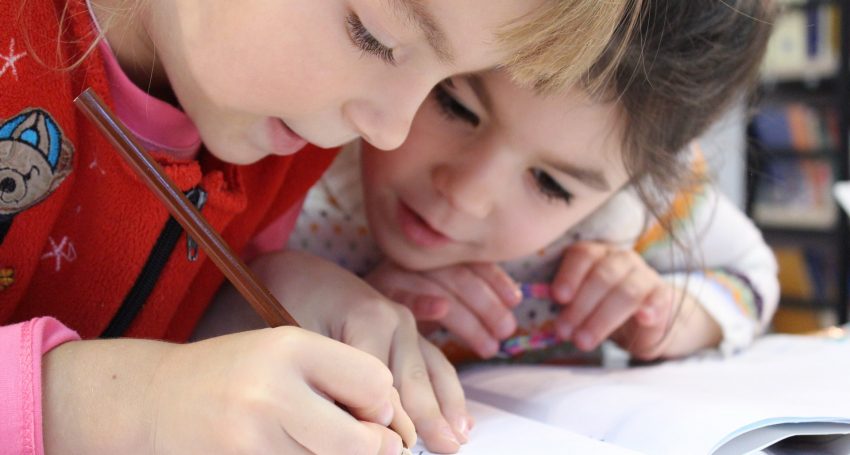Tips for managing back-to-school anxiety
News
As more than 800,000 Queensland students return to school this week, parents and guardians have a crucial role to play in helping their children manage the transition from home to classroom

As more than 800,000 Queensland students return to school this week, parents and guardians have a crucial role to play in helping their children manage the transition from home to classroom.
Anglicare’s Alecia Williamson, a Service Manager in the not-for-profit organisation’s Mental Health and Wellbeing Team, says the start of the school is one of the most stressful times of year, both financially and emotionally, for families.
It’s estimated that 10 to 20 per cent of Australian kids regularly experience anxiety.
“It’s a big financial impact on the family and it’s a significant change for young children, especially those who are starting Prep,” Ms Williamson said.
“It’s all new for them – new adults, new children and a new environment and that can cause some to experience anxiety and loneliness. It can also lead to changes in behaviour at home.”
Ms Williamson said parents and guardians had an important role to play in helping children to adjust to the school environment and shouldn’t rely only on teachers.
“Children of Prep age are like sponges – they pick up on the moods and demeanor of the adults around them, so it’s really crucial to be self-aware, calm and consistent. Even small changes in what we say or do at home can have a huge impact,” she said.
“Speak positively and with enthusiasm about going to school. Share your own stories, including if you were worried and what you did – you are your kid’s biggest teacher.
“We run regular programs with families who have little ones starting Prep and we also speak to teachers about what they experience.
“Teachers are currently telling us that while reading and writing skills are important, there are some very basic skills that will make a big difference to how Preps adjust.
These include being able to:
- Hold a pencil, zip up their bag, take their shoes off and put them on
- Recognise their belongings and name
- Put their own things away
- Chat with other children
- Sit on the mat for short periods for story time
- Go to the toilet by themselves
“These things seem simple to us, but for a Prep student in a new class with other kids they don’t know, they can quickly become overwhelmed.”
Ms Williamson said consistency was the key and setting an achievable family routine would make the transition to school easier for the entire family.
“After the holidays it is hard work for everyone, but a routine makes a big difference and the earlier you start the better,” she said.
Advertisement
“Have a smaller routine individualised for each child and consider using age-appropriate pictures showing the child doing the task.
“Look at what can be done the night before, such as bag packing or laying out clothes or packing lunches and always get the kids involved whenever you can.
“Start having conversations about heading back – what are you looking forward to, what is your favourite thing at school, friends, etc? Take a tour of the school with your child and try to understand their concerns and consider how you they can address these.”
“It is also a tough time financially for many families, so see if you can save on uniforms. If uniforms are costly, check the school policy – can you get plain shirts, hats, shorts and skirts in the school colours? Is there a second-hand uniform shop or are there second-hand uniforms being sold in your local Facebook group?”
Ms Williamson said once a child was back at school, it was also important monitor how they are going.
“When school goes back, prepare for kids to be tired in the first couple of weeks. Bed times and good food will be important,” she said.
“It’s also important to ask open-ended questions to monitor how they are going. Instead of asking ‘how was your day?’ ask questions like:
- What was your favourite thing that happened today?
- What happened today that you wish hadn’t happened?
- Are there any rules that are hard to follow?
- What subject was the most interesting today?
- What was something new you read today?
- Did anyone do something nice for you today?
- Did you do something nice for anyone?
- What are you looking forward to tomorrow?
- What is your favourite part of class?
- Did you learn anything new today?
- What made you feel good today?
- If you could change one thing about today what would it be?”
Getting ready for Prep tips
Establish and maintain a regular routine in your household at least a week before school starts.
Tour the school with your child and take pictures.
Instill a sense of identity in your child – their full name, who their mum and dad are, how many siblings they have.
Work on the child’s strengths and interests, rather than skills they are not interested in.
Send your child in with confidence. If they see you are anxious/scared, they can easily pick up on that and have a hard time adjusting.
Advertisement
Encourage them to ask someone to play with them and try for play dates to help them feel connected to someone at school.
Read to your child every day to establish reading routines and help build their vocabulary and concentration among other skills.
Be honest with the school about any concerns you have about your child’s health, developmental milestones or learning. This helps both the teacher and the school to support your child as best they can.
Once school has started, don’t linger too long at drop off time before leaving and don’t just drop in to say hi.
Volunteer when you can and become involved in the school community to build relationships and generate a greater sense of community for you and your child.
Find out more about Anglicare Mental Health and Family Wellbeing Services at anglicaresq.org.au.






